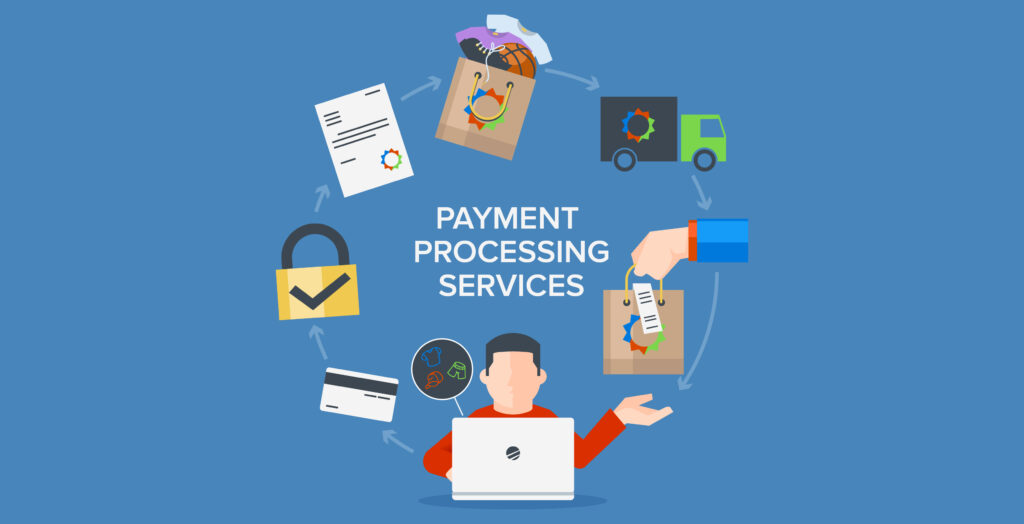
What are Payment Processing Services?

In today’s digital age, businesses are increasingly reliant on online transactions, and to facilitate these transactions, they depend on payment processing services. But what are payment processing services exactly? They are systems that enable businesses to receive and handle different types of payments, including credit cards, debit cards, and electronic bank transfers. Payment processing services are essential for businesses that operate online, as they ensure secure and efficient transactions between the buyer and the seller.
The Basics of Payment Processing Services
Before diving into the complexities, let’s first clarify again: what are payment processing services? These services form the foundation of every financial transaction conducted in a digital setting. They act as intermediaries between the business and the financial institution, ensuring that the transaction is authorized, funds are transferred, and both parties are protected from fraud.
When a customer makes a payment, whether through a card or another online method, a payment processor securely transmits the payment details from the customer to the merchant’s bank account. Without payment processing services, businesses would struggle to manage the vast number of transactions occurring online today.
How Do Payment Processing Services Work?
Understanding what are payment processing services involves knowing how they function. The process starts when a customer initiates a purchase.
Here’s how it works:
- Authorization: The customer’s payment information is sent to the payment processor The payment processor sends this information to the relevant financial institution to verify if the customer has sufficient funds.
- Authentication: The bank either approves or denies the transaction based on the available funds and fraud prevention measures.
- Settlement: After the payment is approved, the funds are transferred from the customer’s account to the business’s account, typically within a few business days.
- Confirmation: The payment processor provides the business with a notification confirming that the payment has been successfully completed.
Each step in this process ensures the transaction is secure and fast, which is why understanding what are payment processing services is critical for any business that accepts payments online.
Why Are Payment Processing Services Important?
So, what are payment processing services doing that makes them so crucial? They provide businesses with the ability to accept multiple forms of payments securely. This is particularly important in today’s global marketplace, where customers expect fast, secure, and reliable payment methods. Payment processing services offer features like:
- Security: Advanced encryption and security protocols ensure that customer data is protected during transactions.
- Speed: Transactions are processed within seconds, ensuring that businesses can quickly confirm orders and receive payments.
- Global Reach: Payment processing services enable businesses to accept payments from customers worldwide.
- Compliance: They ensure that businesses adhere to regulations and standards like PCI DSS (Payment Card Industry Data Security Standard), which governs the handling of cardholder data.
By providing these benefits, payment processing services help businesses run smoothly while minimizing the risks associated with online transactions.
Types of Payment Processing Services
Another aspect of understanding what are payment processing services is recognizing the various types available. Payment processing services can be broadly categorized into two types:
- Gateway Payment Processing: This service acts as the bridge between a business and a financial institution It encrypts and transmits payment information to the payment processor. Notable payment gateways include PayPal, Stripe, and Square.
- Direct Payment Processing: This involves directly handling transactions without the need for third-party services. Large enterprises often use this method as they have the infrastructure to handle transactions securely and efficiently.
By understanding these different options, businesses can choose the right payment processing service based on their specific needs.
What Are Payment Processing Services and Their Key Features?
When asking, what are payment processing services, it’s essential to consider their core features, which include:
- Multi-Currency Support: Payment processors often accommodate multiple currencies, enabling businesses that operate internationally to accept payments in the customer’s local currency.
- Recurring Billing: This feature is ideal for subscription-based businesses, automating the billing cycle for repeat customers.
- Mobile Payment Support: As mobile commerce continues to grow, many payment processors offer mobile-friendly options, allowing customers to pay using their smartphones.
- Fraud Detection: Most payment processing services come equipped with advanced tools to detect and prevent fraudulent transactions.
Challenges in Payment Processing Services
While discussing what are payment processing services, it’s important to acknowledge the challenges they face:
- Security Concerns: Cyber threats are ever-evolving, and payment processors must continuously update their security measures to protect customer data.
- Transaction Fees: Payment processing services typically charge a fee per transaction, which can add up for small businesses with high transaction volumes.
- Regulation Compliance: Payment processors must stay updated with the latest financial regulations to ensure compliance, which can be costly and time-consuming.
Despite these challenges, the benefits far outweigh the drawbacks, making payment processing services an essential part of modern commerce.
Future of Payment Processing Services
As the world continues to shift towards digital payments, what are payment processing services expected to look like in the future? One significant trend is the rise of cryptocurrencies and blockchain technology, which could revolutionize how payments are processed. Additionally, artificial intelligence (AI) and machine learning are likely to play a more prominent role in fraud detection and customer service.
Another trend is the increasing focus on contactless payments. With mobile wallets like Apple Pay and Google Wallet becoming more popular, payment processing services will continue to evolve to meet the demand for fast, secure, and touch-free transactions.
Conclusion
So, what are payment processing services? They are the backbone of any digital transaction, providing businesses with the ability to accept payments securely and efficiently. As the demand for online transactions continues to grow, payment processing services have become more crucial than ever. By ensuring security, speed, and global reach, these services help businesses thrive in the digital world.
Whether you are running an e-commerce site or a brick-and-mortar store, understanding what are payment processing services and selecting the right provider can make all the difference in ensuring the smooth operation of your business.












